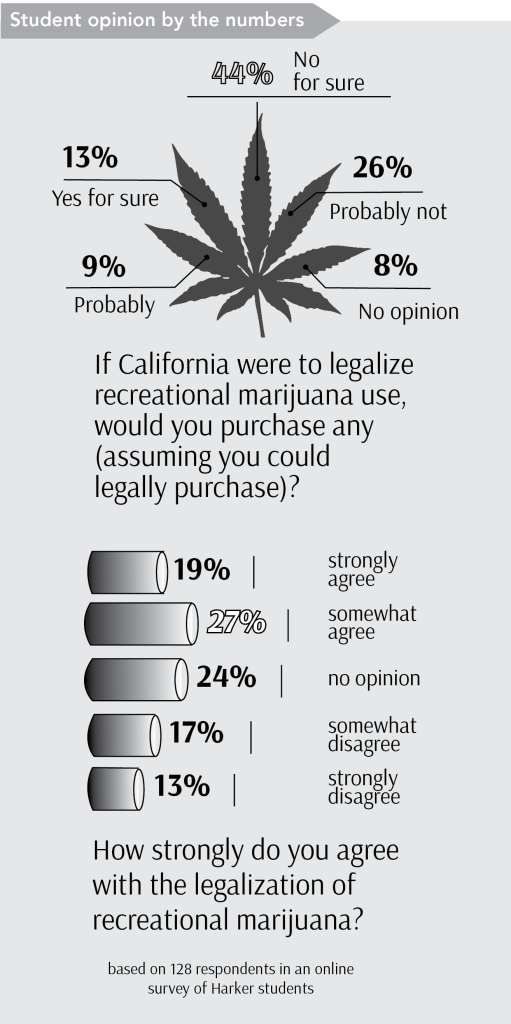Trailblazing: Colorado legalizes retail marijuana
Legal purchases of recreational marijuana began in Colorado on Jan. 1, marking the first time in U.S. history that the drug has been sanctioned for non-medical sale.
About 35 dispensaries around the state opened that morning to throngs of customers, including both Colorado residents and curious travelers from around the world. Those stores reported a total of over $1 million in retail sales in just the first day of legalization.
“[It’s] been crazy,” said Hank Borunda, owner of The Greener Side dispensary in Pueblo, Colorado in a phone interview. “Lines everywhere, potheads coming out of the woodworks.”
Recreational pot is now available to adults aged 21 and over, with each purchase limited to one ounce for Colorado residents and a quarter of an ounce for nonresidents. Smoking in public areas, driving under the influence, and transporting marijuana out of Colorado remain illegal.
Under U.S. federal law, marijuana is illegal for both recreational and medical use. The Justice Department has stated, however, that it will not prosecute a strictly regulated marijuana industry. Even President Obama said in an interview published last week in The New Yorker that marijuana was less dangerous than alcohol “in terms of its impact on the individual consumer.”
Borunda, who has been in the medical marijuana business since 2010, maintained that decriminalization in Colorado would be beneficial in the long run, especially given retail marijuana’s effective tax rate of nearly 30 percent.
“There’s so much tax money for the state and the counties, and it helps the kids and the schools,” he said. “It’s going to do great things for Colorado—Colorado might even be built on weed.”
Students held varied opinions on the events in Colorado. Albert Chu (12) supported the legalization as an opportunity for government regulation and licensing, “which, regardless of your personal views on marijuana, increases public safety and health.”
Rishabh Chandra (10) also favored legalization, though from a democratic standpoint.
“I think that pot should be legalized because it should be a public choice,” he said. “If people want to get high on pot, and they’re over 21, great! I don’t know if smoking pot is necessarily a good thing, but making it legal is totally fine.”
Others predicted that legalizing marijuana would lead to negative impacts on society as a whole.
“I think it’s sort of uncalled for, seeing as the rest of the states ban pot,” Kaushik Sankar (10) said. “Just legalizing it would increase the crime rate and have other detrimental effects. There literally is no way that legalizing a banned drug would end well.”
Public health effects have also dominated the debate on marijuana decriminalization.
“[Marijuana] has been proven to have adverse health effects,” Serena Wang (11) said. She opposes legalizing the drug “unless it’s an effective medicine for sick people and there’s no alternative.”
Anti-drug organization Smart Approaches to Marijuana’s (Project SAM) website lists health risks ranging from lung cancer to mental illness as results of pot use. Some of Project SAM’s other concerns include the creation of a “Big Marijuana” commercial industry and an increase in illegal drug use among youth.
To Borunda, however, Colorado’s legalization of retail marijuana will have little to no effect on teenage drug culture, though he expects that illegal dealers will be hurt.
“Kids are kids, and they’re going to do what they want,” he said. “When there’s a will, there’s a way, and if kids want to get their hands on [marijuana], they’re going to, legal pot or not.”
In California, where medical marijuana has been legal for 17 years, negative social effects have been minimal, according to an October 2013 article in The New York Times. California’s requirements for obtaining a medical marijuana card are infamously lenient, but teenage drug use has not risen drastically.
Precedents like California have shifted public opinion toward legalizing recreational marijuana. An Gallup poll in October found that 58 percent of Americans favored legalization.
Retail marijuana in Colorado—and Washington, later this year—is still an experiment. The long-term economic and social effects of legalization and regulation are still unknown. Those consequences will ultimately determine if other states follow Colorado’s lead—or if the future of legal marijuana will go up in smoke.
This piece was originally published in the pages of the Winged Post on Jan. 27, 2014.

Stanley Zhao (12) is the business manager of the Winged Post. He is a senior this year. Stanley is part of the math club and is currently conducting a...


















![“[Building nerf blasters] became this outlet of creativity for me that hasn't been matched by anything else. The process [of] making a build complete to your desire is such a painstakingly difficult process, but I've had to learn from [the skills needed from] soldering to proper painting. There's so many different options for everything, if you think about it, it exists. The best part is [that] if it doesn't exist, you can build it yourself," Ishaan Parate said.](https://harkeraquila.com/wp-content/uploads/2022/08/DSC_8149-900x604.jpg)




![“When I came into high school, I was ready to be a follower. But DECA was a game changer for me. It helped me overcome my fear of public speaking, and it's played such a major role in who I've become today. To be able to successfully lead a chapter of 150 students, an officer team and be one of the upperclassmen I once really admired is something I'm [really] proud of,” Anvitha Tummala ('21) said.](https://harkeraquila.com/wp-content/uploads/2021/07/Screen-Shot-2021-07-25-at-9.50.05-AM-900x594.png)







![“I think getting up in the morning and having a sense of purpose [is exciting]. I think without a certain amount of drive, life is kind of obsolete and mundane, and I think having that every single day is what makes each day unique and kind of makes life exciting,” Neymika Jain (12) said.](https://harkeraquila.com/wp-content/uploads/2017/06/Screen-Shot-2017-06-03-at-4.54.16-PM.png)








![“My slogan is ‘slow feet, don’t eat, and I’m hungry.’ You need to run fast to get where you are–you aren't going to get those championships if you aren't fast,” Angel Cervantes (12) said. “I want to do well in school on my tests and in track and win championships for my team. I live by that, [and] I can do that anywhere: in the classroom or on the field.”](https://harkeraquila.com/wp-content/uploads/2018/06/DSC5146-900x601.jpg)
![“[Volleyball has] taught me how to fall correctly, and another thing it taught is that you don’t have to be the best at something to be good at it. If you just hit the ball in a smart way, then it still scores points and you’re good at it. You could be a background player and still make a much bigger impact on the team than you would think,” Anya Gert (’20) said.](https://harkeraquila.com/wp-content/uploads/2020/06/AnnaGert_JinTuan_HoHPhotoEdited-600x900.jpeg)

![“I'm not nearly there yet, but [my confidence has] definitely been getting better since I was pretty shy and timid coming into Harker my freshman year. I know that there's a lot of people that are really confident in what they do, and I really admire them. Everyone's so driven and that has really pushed me to kind of try to find my own place in high school and be more confident,” Alyssa Huang (’20) said.](https://harkeraquila.com/wp-content/uploads/2020/06/AlyssaHuang_EmilyChen_HoHPhoto-900x749.jpeg)



